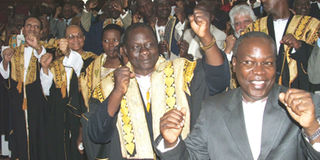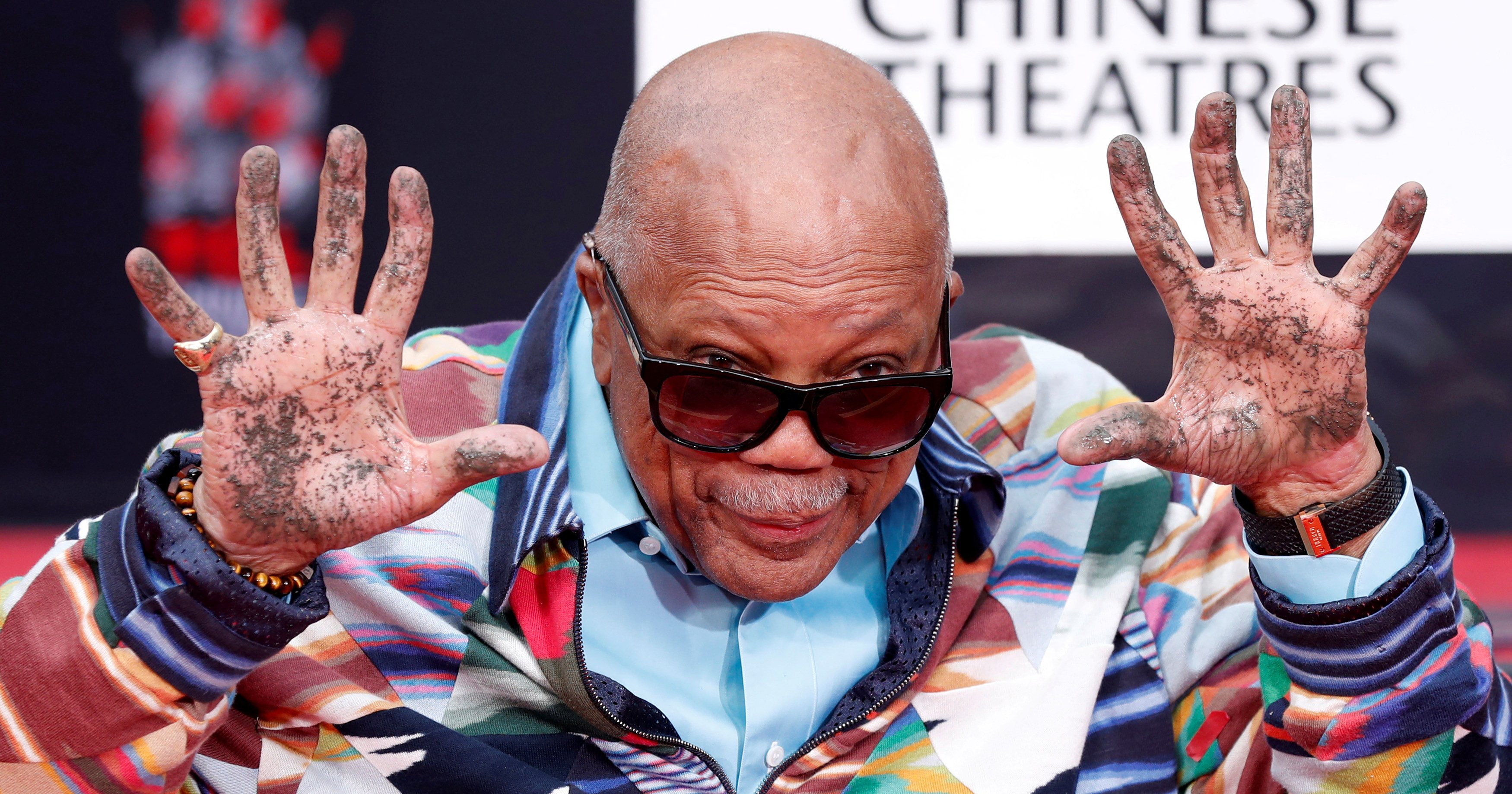Prime
Buganda nationalism ‘written’ in its anthem

Buganda Lukiiko representatives singing the anthem before a special seating. File Photo.
What you need to know:
Starting today, Daily Monitor, in a run-up to Kabaka Ronald Muwenda Mutebi’s 20th anniversary as king of Buganda, brings you a special series about the Buganda Kingdom from its creation, politics, norms, culture, traditions and main actors. We will go back to the past, bring you to the present and we will look ahead, to see what the future holds for the kingdom that gave this country its name. Today, we look at the significance of its anthem.
There is something about anthems. They tend to sound solemn, almost like a prayerful hymn, with all the sacredness bestowed on them. They are serious stuff.
How a sound is registered to an individual’s auditory senses will of course vary from one individual to another. But what would you say about Buganda Kingdom’s anthem? Is it the prayerful kind, or is it more jovial, a celebratory kind?
What is for sure is that the anthem has played a central role as a rallying call for patriotism in Buganda, a core function of any anthem anywhere. The anthem reads like a prayer, and sounds quite upbeat. It is a song of praise about the endowment and past conquests of the kingdom. It especially calls upon whichever presiding generation not to let down the kingdom’s glorious past.
The song taps deep into the feelings of belonging of the Muganda singing it. The lyrics that tell of Buganda’s great past tend to give whoever recites them the feel of belonging to a great people, whose greatness has existed for centuries.
Good piece of art
As a musical creation, Ekitiibwa kya Buganda is a harmonious sound, one that music professionals today praise for its aptness.
“That the anthem Ekitiibwa kya Buganda has lasted this long, shows that it is a good song. When we do the analysis, one needs to understand the writer, and imagine what sparked his or her genius,” says celebrated songwriter and singer, Sylver Kyagulanyi.
In this song, I see the liberty of the writer. He had a leverage to compose what he wants. He is not too technical and it is clear that he was not in a competition with anyone. The voice ranges are inclusive, even for people who cannot go to high voices – which is good for a national anthem. It allows everybody to sing along,” he adds.
The vice chairperson for the Buganda Caucus in Parliament, Betty Nambooze, says that there is no strict code to follow when and how to sing the anthem. While singing the anthem, however, many Baganda stand up, others raise their right hand or place one of the hands on the chest. Some women kneel.
“People are spontaneous while singing the anthem. And there is need for the Lukiiko [Buganda parliament] to come out and clearly stipulate, for instance, how many stanzas should be sang when the Kabaka is or is not amidst his people. Lukiiko should also instruct us on what to do when the Ekitiibwa Kya Buganda is sung, according to our norms and traditions,” says Ms Nambooze, who once served as the chairperson of the Buganda Kingdom Civic Committee.
Rally for Ganda nationalism
In a republican setting such as we have in Uganda today, one trying to co-exist with monarchical remains, it is difficult to look at Buganda’s anthem without considering how it weighs in with Uganda’s national anthem.
And in the end, it symbolises a clash of allegiances that exists on the ground, where you find that many a lay Muganda are more attached to their kingdom’s anthem, than to their republic’s national anthem. Ekitibwa kya Buganda vis-a-vis Uganda’s National Anthem, is an important case study in just how hard it has been to create a nation called Uganda.
Before we delve further, please answer this simple question: how much do you know of Uganda’s national anthem? How many stanzas can you sing, unprompted? Now, if you are a Muganda, or anybody familiar with Ganda traditions, how much of the Buganda anthem do you know? How much of it can you sing unprompted?
And in your answers will lay the true significance of these two anthems to us today.
“That is our song. We sing it because we love our kingdom. We love our king. This is our land,” says a one Christopher, a mechanic and motor-parts dealer in Kisekka Market. Asked which of the two anthems he could sing, Mukalazi, also a trader, car mechanic and car washer in the market, says, “That national anthem is for you people who went to school. I do not know it. I do not even know which words are sung,” he shot back, and for a few seconds after answering, he attempts to rouse his colleagues into reciting the anthem.
For these youth, the anthem taps raw nerves of Ganda sentiment, filling them with pride. Buganda Kingdom’s spokesperson, Denis Walusimbi Ssengendo, says you see this sentiment, of great joy, love and happiness for the kingdom and king, when Baganda are reciting the anthem. It is more so when in the presence of the Kabaka. Another of the reasons that the Baganda love their anthem is because as Mr Walusimbi Ssengendo says, is because it is in a local language and therefore they understand it.
This form of emotive attachment visibly present as Baganda recite the anthem is one that Ms Nambooze says she has noticed in say Busoga and Rwenzururu kingdoms. It is a feat that suggests a close affinity and sense of attachment between natives and their cultural heritage.
The Mukono Municipality MP also explains that the North America Buganda Conference (Ttabamiruka) where Baganda in the American diaspora meet annually, play only the Buganda anthem and refused to sing the National Anthem, which has put them on the collision path with the official Mengo position which wants them to recognise their country, Uganda.
Last year, Mengo officials, Ambassador Emmanuel Ssendawula and Charles Peter Mayiga, now, the Katikkiro, impressed upon the organisers of the event to play both anthems, though the organisers have insisted that they are Baganda whose country is USA and that is the national anthem they know.
In light of other ethnicities
It is impossible to avoid the fact that Buganda today exists in a multi-ethnic society, where it shares national borders with other ethnicities. It thus stands as interesting, what Buganda’s anthem, and what it professes, means to the non-Baganda within Buganda’s confines.
Political commentator, Yoga Adhola, wrote last year for this newspaper, saying that the greatness that Baganda sing about in their anthem is viewed as one of domination and humiliation of other ethnicities in Uganda, and in a way, saying that this greatness was gained at the expense of other ethnicities in Uganda.
Mr Adhola’s comments pointed to a scenario that while many Baganda may sing about a kingdom with a great past, other ethnicities in Uganda were not very pleased to hear this recited. In response, Mr Walusimbi Ssengendo says that Buganda cannot be seen through the small prism of Uganda because although Uganda is a colonial creation that has existed for 50 years, Buganda has existed for 1,000 years. He adds that Buganda always had a history of assimilation and being accommodative where it welcomed everybody and anybody.
If you have been a keen watcher of recent protest movements in and around Kampala, you will have noticed a common characteristic. A group of rowdy youth waving branches, sticks and placards, suddenly running against and away from a bunch of anti-riot police officers. They may throw stones and other projectiles at the police, run away and thereafter, stand up and commence reciting the Buganda anthem, in a coarse-sounding voice, amid excited chanting.
This, probably, was most visible during the Buganda Riots of 2009, when raw Ganda passions poured onto the streets, in a fistful of rage over the central government’s decision to block Kabaka Ronald Muwenda Mutebi II from visiting Kayunga district. The anthem has thus been very easily used as a song of protest. Ssengendo says that this can be explained in the sense that some Baganda have felt betrayed by the republican central government, and that in such times, they run back home, where they know they will not be betrayed.
On July 31, and on August 3, Baganda will throng the royal grounds of Mengo for functions to mark 20 years since the Kabaka ascended to the throne.
Somewhere during that event, there will be that moment of solemn sacred importance, when the Baganda in attendance will stand up and sing out to profess undying love for their kingdom. And that is the role the anthem has played; offering a soaring tide for a surge in Ganda patriotism.
The Buganda Anthem
In Luganda
Chorus
Twesiimye nnyo, twesiimye nnyo
Olwa Buganda yaffe
Ekitiibwa kya Buganda kyava dda
Naffe tukikuumenga
Stanza I
Okuva edda n’edda eryo lyonna
Eryo eggwanga Buganda
Nti lyamanyibwa nnyo eggwanga lyaffe
Okwetoloola ensi yonna
Stanza II
Abazira ennyo abatusooka
Baalwana nnyo mu ntalo
Ne balyagala nnyo eggwanga lyaffe
Naffe tulyagalenga
Stanza III
Ffe abaana ba leero ka tulwane
Okukuza Buganda
Nga tujjukira nnyo bajjajja baffe
Baafirira ensi yaffe
Stanza IV
Nze naayimba ntya ne sitenda
Ssaabasajja Kabaka
Asaanira afuge Obuganda bwonna
Naffe nga tumwesiga
Stanza V
Katonda omulungi ow’ekisa
Otubeere Mukama
Otubundugguleko emikisa gyo era
Bbaffe omukuumenga
English Translation
Chorus
We are very blessed, we are very blessed
For our Buganda
Buganda’s glory dates back in time
Lets also uphold it forever
Stanza I
Since time immemorial,
This nation, Buganda,
Was well known by all and sundry
The world over
Stanza II
The heroes who came before us
Fought hard in many a war
They loved our nation so,
We too, should love it forever
Stanza III
We the children of today should fight hard
To build Buganda
As we remember our ancestors
Who died for this, our nation
Stanza IV
How can I sing without praising
His Highness the king
He is fit to reign over Buganda in its entirety
While we trust him
Stanza V
Oh good merciful God
Guide us, oh Lord
Bless us, oh Lord
And guard our king.




